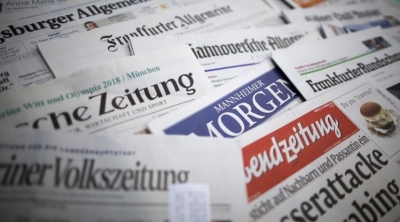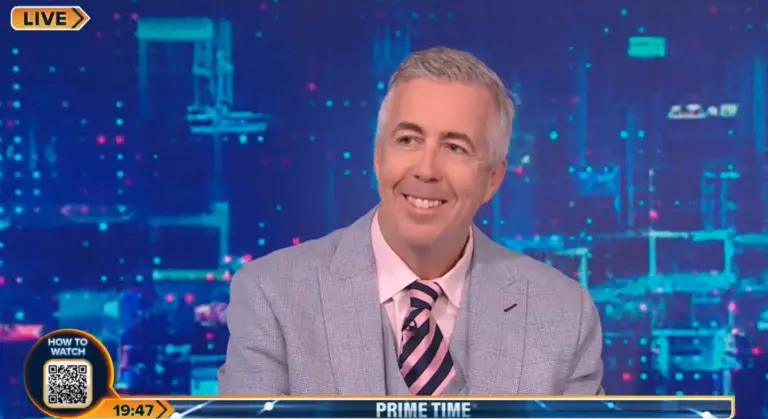After signing the official letter notifying Donald Tusk of the UK’s withdrawal from the EU yesterday, Prime Minister May followed up with a call to the president of the European Council, the president of the European Commission – and the German Chancellor, Angela Merkel.
Singling out the German Chancellor in this way highlights both the importance of the German-British relationship in the next two years of Brexit negotiations, and the now customary role of Germany as the flag-bearer of the European Union.
While not much is known about the content of the call with Ms Merkel, German papers and news magazines this morning gave us a few clues about how Brexit is being received by one of our key European partners.
Süddeutsche Zeitung

Judging by its online offering, leading German publication Süddeutsche Zeitung is more concerned about President Trump’s climate change policies than Britain’s decision to quit the EU. On Brexit, the paper leads with a piece about Sir Tim Barrow, who has hand-delivered May’s Brexit missive to Donald Tusk today.
Interestingly, while the British press has eagerly adopted Downing Street’s representation of the triggering as a historic moment – portrait of Sir Robert Walpole, Britain’s first Prime Minister, included – the leading article in the Süddeutsche drily describes the delivery of the letter as “banal”. The paper has also published an exclusive interview with Joachim Wuermeling, Executive Board Member of the German central bank, who compares the UK’s attractiveness after Brexit as a third country trading partner to that of Tunisia.
Frankfurter Allgemeine Zeitung

The centre-right German daily Frankfurter Allgemeine warns of the costs of Brexit – both for the UK, claiming that Brexit could cost every Briton €5,000 a year, and for Germany and the rest of the EU.
The leading comment piece is notably critical of the EU’s reaction to Brexit, warning that the EU has chosen not to interpret Brexit as a vote of no confidence, and that it is closing its eyes to the “multiple crises threatening its existence”. Instead, the piece argues, the EU is “pretending Britain was never really a part” of the union, and should “be punished for its attempts at cherry-picking”. Highly critical of EU complacency, the piece warns that Germany could be the “main loser” after Brexit.
Der Spiegel

Weekly national news magazine Der Spiegel has kept a cool head in the whole kerfuffle – leading with a deadpan “Things you should get done before Brexit”.
Die Welt

Conservative-aligned daily Die Welt leads with the Thatcher-evoking “The Iron Lady of Small Britain”. Profiling the Prime Minister against Ms Thatcher, Queen Elizabeth I, and Chancellor Merkel, the piece remains balanced in articulating the tensions between a global elite and “Small Britain” which have led to Brexit.
Bild

Germany’s leading tabloid, whose circulation trumps all other nationals, is documenting the events in London and Brussels via a livestream, adorned with graphics in a Union Jack colour scheme. Casting Brexit as the end of a marriage, the paper wonders how “dirty” the coming divorce will be, but remains surprisingly neutral in its reporting.
Die Zeit

Weekly paper Die Zeit has opted for a dramatic look reminiscent of US television drama House of Cards – a darkened London skyline behind the headline “The Art of the Deal”. The piece highlights the unknown territory both Britain and the EU are now stepping into, recommending that the EU takes a tough stance, particularly on Britain paying its dues if it wants to continue reaping benefits from the single market. Notably, the piece highlights the “half-truths and outright lies” of the Leave campaign and Prime Minister May’s “unrealistic dreams” about the trade deals she is seeking to secure – and lands a final blow on Britain’s economic policy, which it describes as having been “mishandled over many years”.
The dire slant of many of these pieces is of course partly caused by Germany’s position on the other side of the negotiating table. But compared to the British press, it is striking just how united the German press has been in opting for compromise, caution, or downright gloom over glory.




